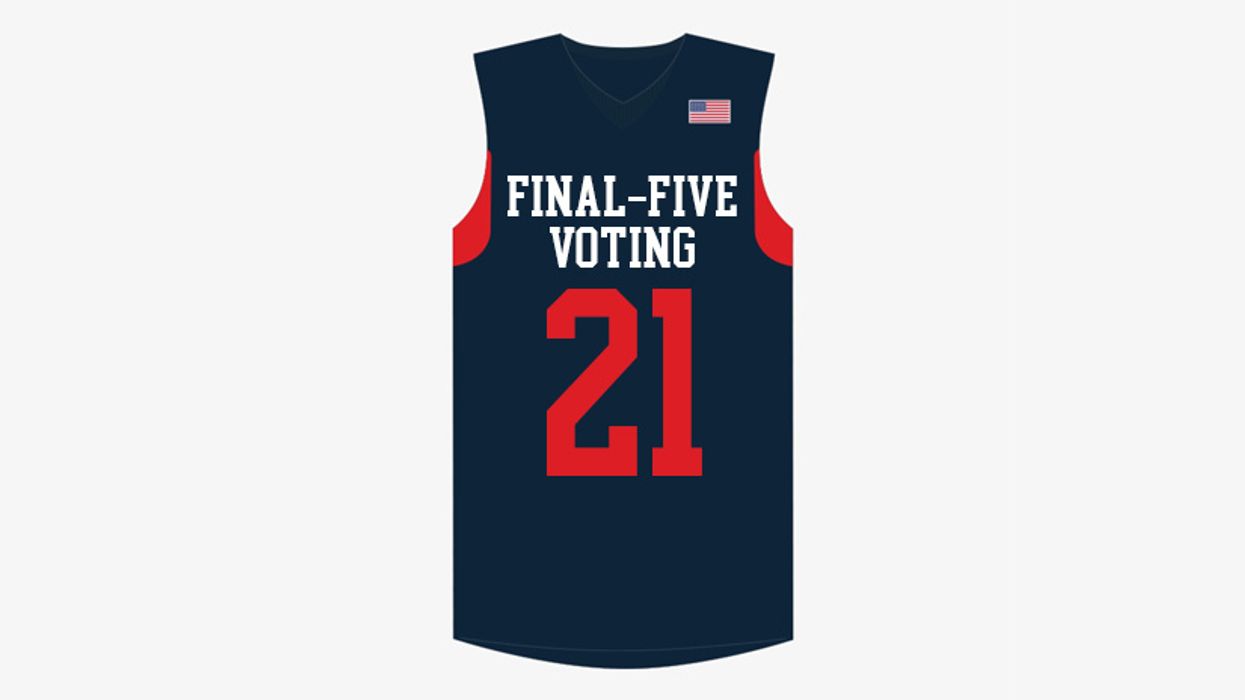Gehl is the former CEO of her family company, a high-tech Wisconsin food manufacturer, and founder of the Institute for Political Innovation, which promotes policies to make elections more competitive. She is a co-author of the forthcoming "The Politics Industry: How Political Innovation Can Break Partisan Gridlock and Save Our Democracy" (Harvard Business Review Press).
On Monday, ranked-choice voting was crowned champion of the inaugural Democracy Madness tournament, held here at The Fulcrum.
It was a much-deserved victory in a crowded field of talented competitors. I send my congratulations to all the players and coaches.
Competition is good, in business and in political innovation.
Over the last five years I've dedicated nearly all of my professional energy to better understanding the nature of competition in politics. (Spoiler alert: Competition in our political system is incredibly unhealthy.)
My original idea, viewing politics through the lens of industry competition, set the foundation for "politics industry theory." In 2016 I asked Harvard Business School professor Michael E. Porter to join me as my co-author. We published our first report three years ago and our book exploring this topic will be released in two weeks.
All told, we have written hundreds of pages about how the current rules of the game in the politics industry stifle healthy competition and protect the entrenched political-industrial complex — the Democrats and the Republicans, and the industry actors aligned around them — while our democracy, our social progress and our economic competitiveness all continue to decline.
Stepping back to reflect on this period of exploration and collaboration with so many others in this movement, while also observing the confluence of crises unfolding across our country, I'm even more motivated to be a part of the democracy reform community.
That is why I am submitting a newly eligible competitor for Democracy Madness 2021: final-five voting.
What's that? It is a two-step structural innovation package for our congressional elections designed to inject healthy competition into our political system.
Healthy competition in any industry produces innovation, results and accountability. And that's exactly what we need from our politics. But ranked-choice voting, by itself, cannot get us there.
On its own, RCV is a great improvement on the winner-take-all, first-past-the-post plurality system that dominates most of our elections. Its adoption would create more competition — and this means more accountability — by eliminating the enormous barrier to new competition created by the "spoiler problem." But it would not break down the major barrier to results, which is the party primary.
As Porter and I wrote in Salon this month, partisan primaries have over time "forced current and aspiring congresspeople to move further to the left or the right on the political spectrum — and stay there if they hope to get elected. Because primaries are low-turnout elections dominated by highly engaged partisans and special interests, they function almost exclusively as tests of fealty to these gatekeepers, not the public interest, and they hang like swords of Damocles over the heads of elected officials."
"Winning a seat in Congress," we noted, "only increases your duty to these hyper-partisan industry superintendents. If you cross party lines, your punishment awaits in the next party primary."
Just last week, Rep. Eliot Engel, a New York Democrat, was caught on a hot mic saying, "If I didn't have a primary, I wouldn't care," while pleading to participate in a news conference about the police protests.
Party primaries create an eye of the needle through which no problem-solving politician may pass. They make it almost impossible for the two sides to work together. RCV can't fix that.
As I often say, it's the combination of party primaries and plurality voting that guarantees there will be virtually no intersection between our elected officials acting in the public interest and the likelihood of their getting re-elected.
In other words, if America's legislators do their jobs the way we want and need them to, they're likely to lose those jobs.
Final-five voting addresses both of these barriers at once. It replaces party primaries with nonpartisan primaries from which up to five candidates can proceed to the general election. And it replaces plurality voting in the general with RCV.
By shifting to open, top-five primaries and disentangling them from a duopoly label, we would not only liberate the legislative process from the primary threat, but we would also empower a new generation of candidates and ideas.
What we wrote for Salon bears reiterating now:
Final-five voting will change the nature of competition in American politics. It isn't designed to force people to abandon their ideological views, or their parties, or to change who wins; it's designed to change what the winners are incentivized to do, and not do, on behalf of the American people.
The men and women of Congress can be renewed to serve and legislate with problem-solving purposes, and we the people can hold them accountable for it.
Innovation, results and accountability. That's what we like to call "free market politics."
Bringing this back to the inspiration behind Democracy Madness, the NCAA's Final Four is compelling not only for its Cinderella stories, but also because we get to watch powerhouse teams like Wisconsin and Duke compete. But for our purposes, the top-five primaries players and the ranked-choice players need to be empowered to play on the same team.
My Democracy Madness bracket for next year already has final-five voting as the top seed. What's yours?



















